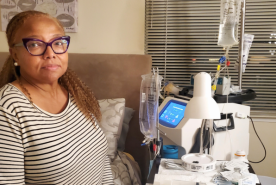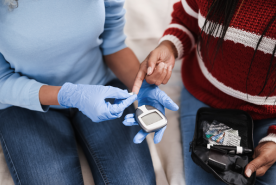Every drug you put into your body passes through your kidneys. If the drug is not taken following your healthcare provider's instructions, or if it is an illegal substance, it can cause injury to the kidneys.
Pain Medications
Your kidneys could be damaged if you take large amounts of over-the-counter medications, such as aspirin, naproxen and ibuprofen. None of these medicines should be taken daily or regularly without first talking to your healthcare provider. Thousands of Americans have damaged their kidneys by using these medicines regularly for too long. To learn more about pain medications and your kidneys click here.
Alcohol
Heavy drinking can hurt both your kidneys and your liver. Alcoholics have a high risk of developing both kidney and liver failure. Learn more about alcohol and your kidneys.
Prescription Laxatives
In general, over-the-counter laxatives are safe for most people. However, some prescription laxatives that are used for cleaning the bowel (usually before a colonoscopy) can be harmful to the kidneys. To learn more click here.
Contrast Dye (used in some diagnostic tests such as MRIs)
Some medical tests called "imaging tests" contain a type of dye called "contrast dye." Examples of imaging tests are MRIs and CT-scans. Contrast dyes can be harmful to people who have kidney disease. Not all imaging tests contain contrast dyes. To learn more about contrast dye click here.
What should you do?
- Do not take any medicine, drug or substance unless you are under a healthcare provider's supervision.
- Do not take pills or substances given to you by a stranger or even a friend.
- If you do take a medication or other substance and feel ill, contact your healthcare provider immediately.
- If you need to have an imaging test or colonoscopy, let your healthcare provider know if you have kidney disease or are at risk for getting it.










